What is a pescatarian? What type of food do they eat, and is it a healthy diet? Learn all about this type of fishy vegetarianism!
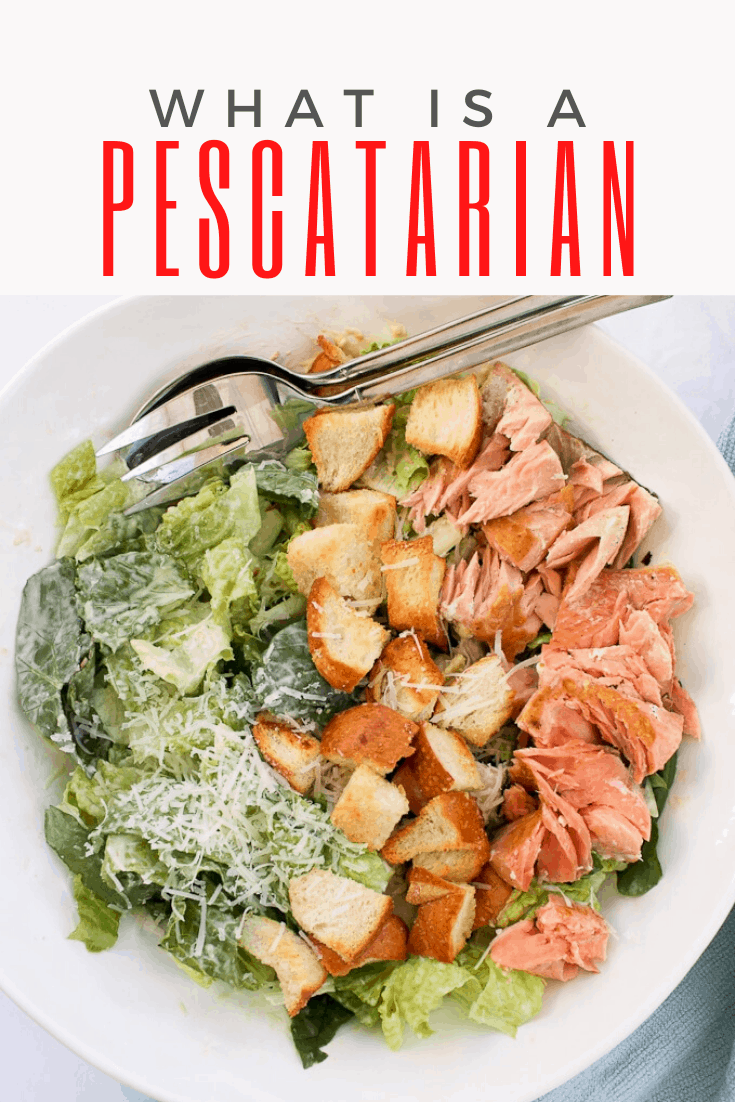
Are you thinking about going pescatarian?
Is someone you love following a pescatarian diet, and now you’re trying to figure out how to cook for them?
What in the world IS a pescatarian anyway?
This article is here to help.
My name is Sarah Trenalone, and I (along with my blogging buddy Dana Sandonato from Killing Thyme) used to manage a Facebook group designed to be a Pescatarian support system. Over the years, we’ve noticed a few recurring things.
Often (especially in January), people join our group, have decided to become pescatarian, and have no idea what that means or how to do it.
Over and over again, we see questions like this:
“Am I allowed to eat [...]” (Insert eggs, cheese, chicken, tofu, etc.)
“Will I lose weight on this diet?”
“Will I feel better on this diet?”
“Do I have to eat seafood every day?”
“Should I be worried about mercury?”
And to all of you asking those questions, I say: Keep asking. That’s what the group is there for.
That said, I wanted to provide a resource to help you (or a friend, or a family member) make more informed decisions about your diet.
Is it Pescatarian or Pescetarian?
Either. Both spellings are correct.
In this article, I’ll be using the spelling “pescatarian” because that’s the most common spelling, but just know that technically, you can spell it either way. In our Facebook group, we spell it “pescetarian.”
What Do Pescatarians Eat?
The easy answer:
A pescatarian diet generally includes vegetables, eggs, dairy, and seafood. It’s basically a vegetarian diet that also includes seafood.
The more complicated answer:
Some people argue that “true pescatarians” only eat plant-based foods and seafood, and “lacto-ovo-pescatarians” are the ones who include dairy and eggs.
Others call themselves “pollo-pescatarians,” and choose to also include poultry in their diet, but completely eliminate red meat from their diet.
If you’ve decided to follow a pescatarian diet, it means you’re not eating beef, pork, and (probably) poultry.
What Are Pescatarians “Allowed” to Eat?
Listen up, guys.
This is important. You are an adult, and you are allowed to eat whatever you want to eat.
Instead, remember the above guidelines, and understand that if you choose to strictly follow a pescatarian diet, you’ll be choosing to pass on burgers and bacon. And burgers WITH bacon.
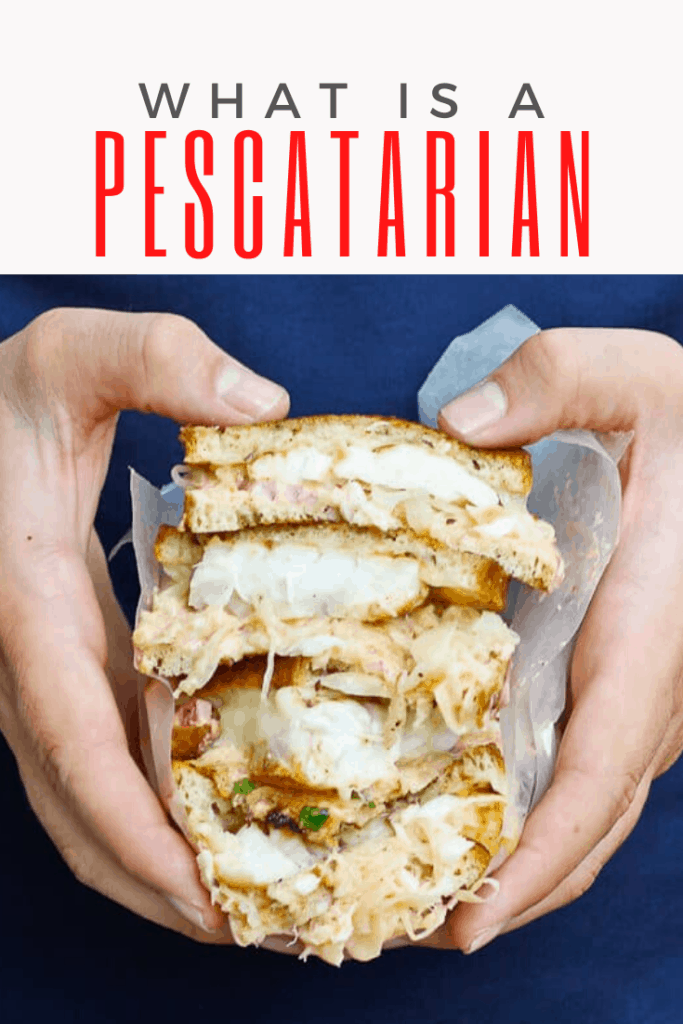
Why Choose a Pescatarian Diet?
There are a lot of reasons you might choose to become a pescatarian!
This diet (or really, lifestyle) has major potential for healthy eating choices. Choosing a pescatarian lifestyle can mean that you choose to eat healthy fats, leafy greens, and hearty grains.
You might be trying to increase your consumption of heart-healthy fish, like salmon, and eliminate food that’s probably less heart-healthy (like red meat).
There is some evidence that a pescatarian diet that includes lots of vegetables and fish (especially ones with lots of omega-3 and healthy fats) can reduce the risk of cancer, diabetes, and heart disease.
Some choose a pescatarian diet to help reduce their impact on the environment or to support animal welfare.
Will I Lose Weight on a Pescatarian Diet?
Not necessarily.
And you’re not guaranteed to lose weight on a vegan, vegetarian, or omnivore diet either.
Why not?
Because not all pescatarian food (or vegan food, or vegetarian food) is healthy!
Think about it. The classic British fish and chips (fried fish and fries) is pescatarian, and so is a meal made up of baked pesto salmon and a side of roasted broccoli with chili flakes.
What’s my point?
If you’re starting a pescatarian diet in order to be healthier, you’ll still have to make healthy eating choices and exercise.
How Often Should I Eat Fish on This Diet?
This comes up a lot in our Facebook group.
Should I eat fish every day?
Is eating fish three times a week enough? Or too much?
There’s not really a right or wrong answer to this one, but there are some things to consider.
For one thing, can you afford to eat fish every day? Fish can be pricey.
If seafood is straining your budget, try eating it less often and include more plant-based meals in your diet, or consider including affordable (but high-quality) canned fish in your meal plans.
Often, though, the reason people ask how frequently they should eat seafood is because they’re worried about getting enough protein or they’re worried about consuming too much mercury.
Keep reading, we’ll talk about both protein and mercury below.
How Can I Include More Protein In My Diet?
If you’re concerned about protein, keep in mind that there are lots of plant-based protein sources. Some of my favorite plant-based protein-packed meals are red lentil dal, vegan chickpea sloppy joes, and this kale apple salad.
If you like to supplement your diet with protein powder and are looking for more options, I love this Four Sigmatic Superfood Protein Powder.
If you feel like you’re not getting enough protein on a pescatarian diet, you can (of course) try to eat fish more often.
However, if you’re simply not feeling great on this diet, it’s a good idea to talk to your doctor or a nutritionist for advice tailored to your health needs.
Mercury in Fish
Should you be worried about mercury in your fish? If you’re eating fish often, then yes, it’s something you should be aware of.
Mercury is a toxic metal that does not biodegrade. It’s washed into streams, rivers, and the ocean, and is ingested by fish.
Some fish have higher levels of mercury than others, and often (but not always) large, predatory fish have higher levels than smaller fish.
Fish with low levels of mercury include salmon, sardines, oysters, and herring.
Fish with very high levels include shark, swordfish, and tuna.
For more specific guidelines on how often to eat a certain fish, I like this smart seafood guide from the NRDC (Natural Resources Defense Council).
Microplastics in Fish
Recently, you may have seen news stories about microplastics (tiny pieces of plastic) that have floated out into our water sources and been eaten by fish. Should you be worried about microplastics in your seafood?
Probably, yes. It’s another thing to be aware of.
But keep in mind, fish get the bulk of the news coverage, but the plastics are also in bottled water, beer, honey, and probably more. So the problem isn’t isolated to seafood, and cutting out fish isn’t going to eliminate your exposure to microplastics.
Should I Buy Fresh or Frozen Fish?
It depends.
Are you buying your fish at a seafood butcher, at a seafood market, or at a store that gets daily fresh seafood deliveries? Get the fresh fish.
If, however, you’re buying fish from the grocery store, be aware that the “fresh” fish at the seafood counter has often been previously frozen and thawed. And who knows how long it’s been sitting there.
I recommend looking for “fresh never frozen” labels at the grocery store or sticking to frozen fish.
Resources for a Pescatarian Diet
Neither myself nor Dana currently follow a pescatarian diet (for various reasons), but we love supporting you on your pescatarian journey.
Browse the recipe index on my site for seafood and lots of garden-to-table vegetable ideas, and make sure to check out my seafood cooking tutorials to learn how to pan-sear fish, how to grill fish, how to buy sustainable shrimp, and more!
And then make sure to head over to Killing Thyme to check out Dana’s seafood 101 tutorials and her recipes too.
More questions? Comment below or head over to our Facebook group!
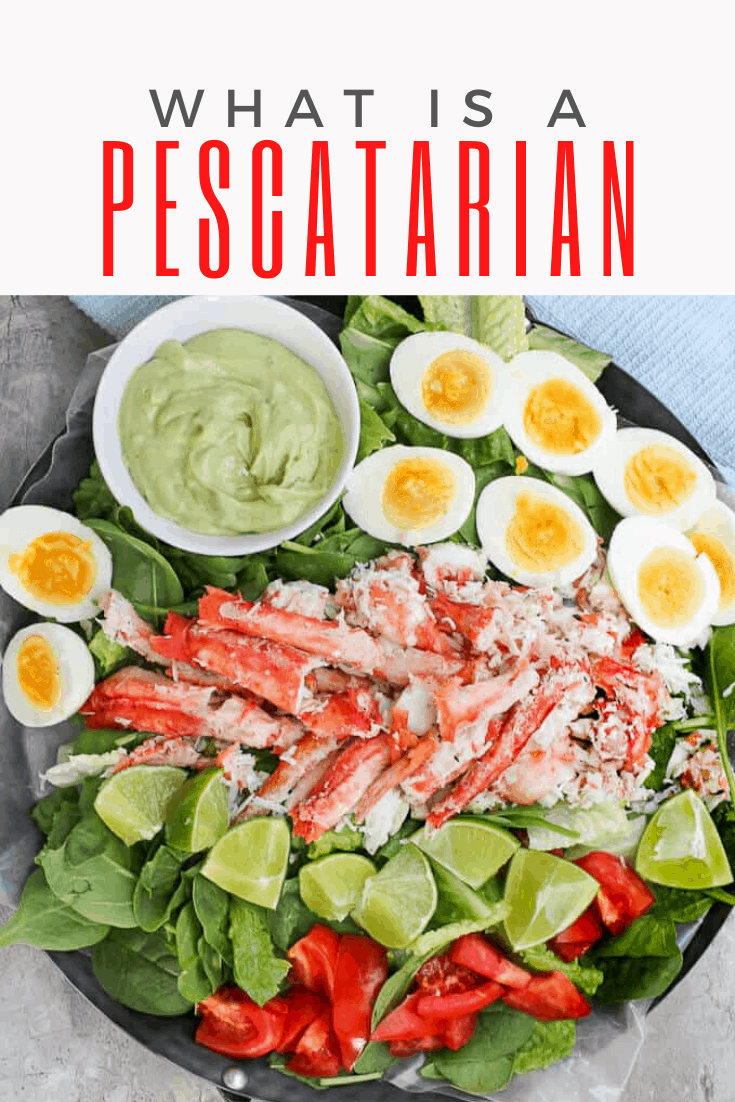

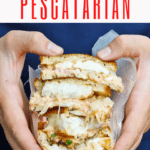
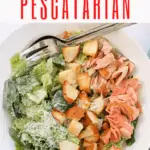
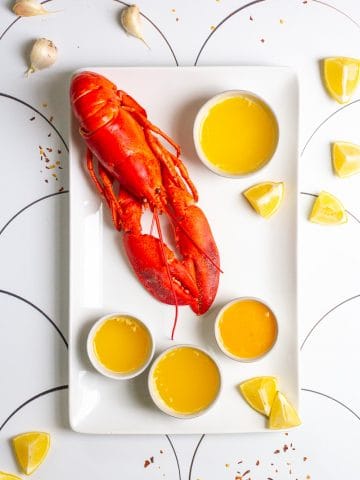
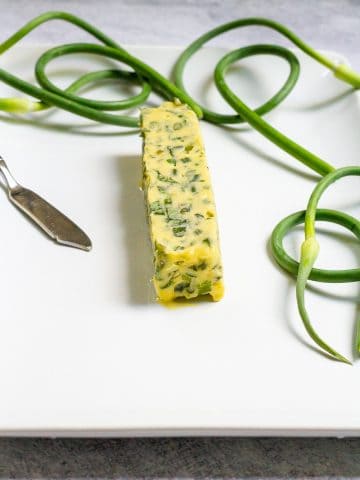
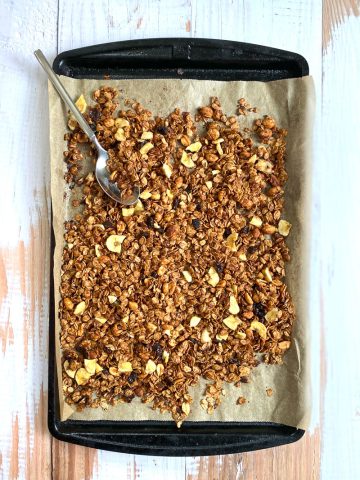
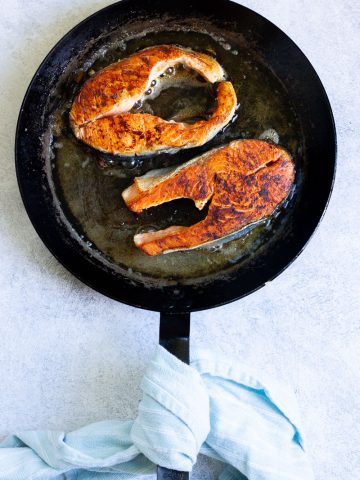
champagne-tastes
Aw thanks 😉 I tried cutting out all meat for awhile and I just wasn't organized enough to get all my protein that way. Plus.. I love fish 😀
Sean@Diversivore
Wonderful roundup! I'm not a strict pescetarian (I'm not a strict anything really), but I do create a ton of pescetarian recipes, and I like to promote pescetarian bloggers like you and Dana. I didn't know much about the other two, so thanks for the heads up! Cheers!
champagne-tastes
I love your fish recipes Sean! They're always fantastic 😀
Misa O'Donnell
My regular meal is often pescetarian, since I eat mostly Japanese foods. Lots of Japanese vegetable side dishes use dashi (bonito flakes & kombu), I like it that way, because dashi can add great umami to vegetables! however, I cannot label those as vegan and vegetarian. It is pescetrian! I don't have a category "Pescetarian" in my blog, but I will add it!
Dana
Love this! It's funny, I'd never heard about pescetarianism until late 2015. I was telling my husband that I wanted to go vegetarian for a month or so; I went as far as to say that I felt I could go full-blown vegetarian if it wasn't for saying goodbye to seafood. He responded with, "You could be pescetarian, though." I was FILLED with glee, let me tell you.
Like you, I eat ALL the fish, except octopus now. I *just* read a few terrible articles about how they're killed and ugh. I just can't now 🙁
Thanks so much for the shout out! I love that I have a fellow pescetarian blogging buddy. I'll have to check out the others!
April J Harris
My friend thinks she is a vegetarian, but she is actually a pescetarian because she eats fish. I'm so glad you shared this post as I am hoping it will help her to understand, and also give her some great resources and recipes. I'm looking forward to some inspiration too as although I'm not a pescetarian, I do love fish of all kinds!
champagne-tastes
That's funny! Yup she's a Pesco-vegetarian! Send her my way!! 😀
Sara
What a great post. I had no idea what the term was for fish friendly vegetarians!
michele
My sister is a Newly proclaimed pescatarian! I just emailed her your blog! She is soooo happy for some fun recipes!